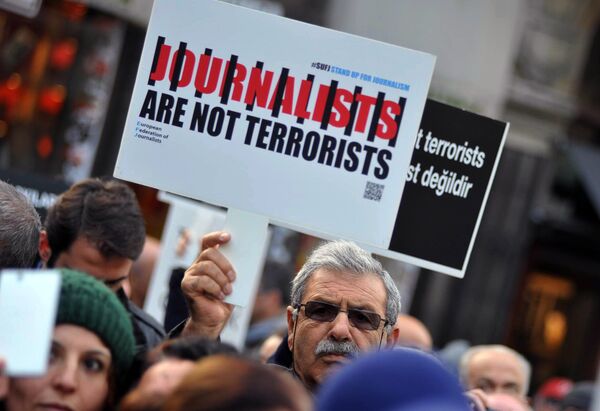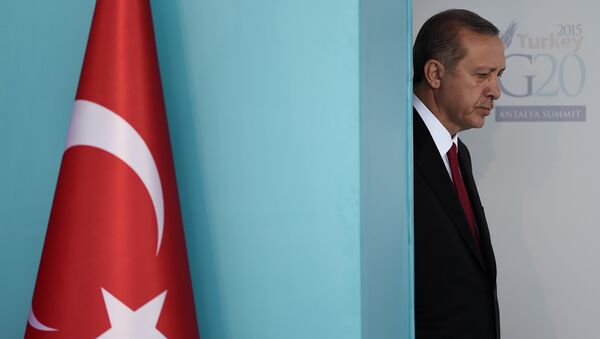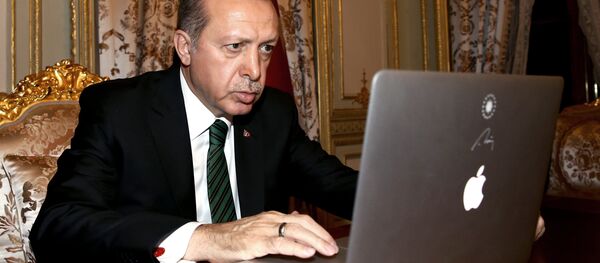"Most probably, [Erdogan] does not appreciate any action that could challenge his quest for unlimited personal power," the Washington-based media outlet noted, referring to the court's decision. "Erdogan does not want any checks and balances. He feels such a mechanism could jeopardize his political survival. For Erdogan, democracy is becoming more and more a straitjacket."
Both journalists were charged with revealing state secrets for "espionage purposes" and aiding a terrorist organization. They face aggravated life sentences, an additional life sentence, as well as 30 years in prison. Their trial is scheduled to begin on March 25.

In late February, Dundar and Gul were released from jail following a Constitutional Court ruling. Dunja Mijatović, the OSCE Representative on Freedom of the Media, hailed the decision as "an important day for media freedom in Turkey" and urged Ankara to drop charges.
For his part, President Erdogan said that he did not "accept or respect" the court's decision. "There was no doubt that the Constitutional Court ruling would upset Erdogan, but few predicted that he would openly challenge it with bristling remarks. Yet he did," Al-Monitor observed.
In recent years, Erdogan has tried to tighten his grip on power, which also entails rewriting the constitution. Many have said that the Turkish president will try to change the country's system from a parliamentary to a presidential one.
Latest developments reinforce this trend: "Turkey's 'strongman' President Recep Tayyip Erdogan is going the extra mile in his trajectory of authoritarianism by challenging a Constitutional Court ruling."




